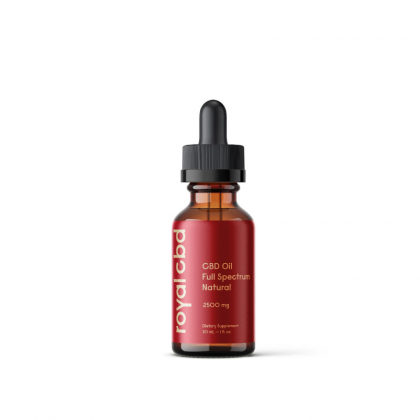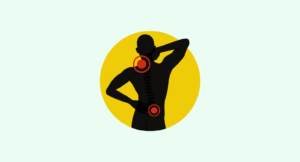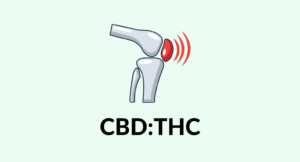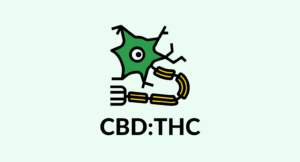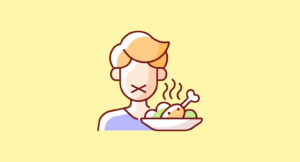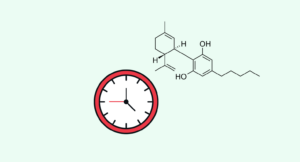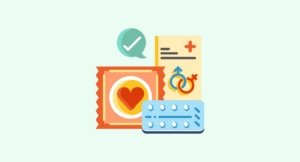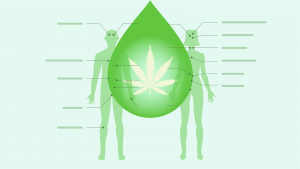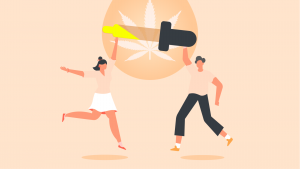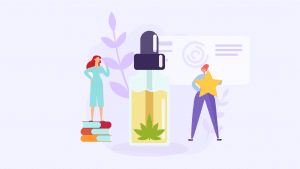| Total CBD: | 500 – 2500 mg |
| Potency: | 16.6 - 83.3 mg/mL |
| Cost per mg CBD: | $0.12 – $0.18 |
| Extract Type: | Full-spectrum |
| THC Content: | <0.3% |
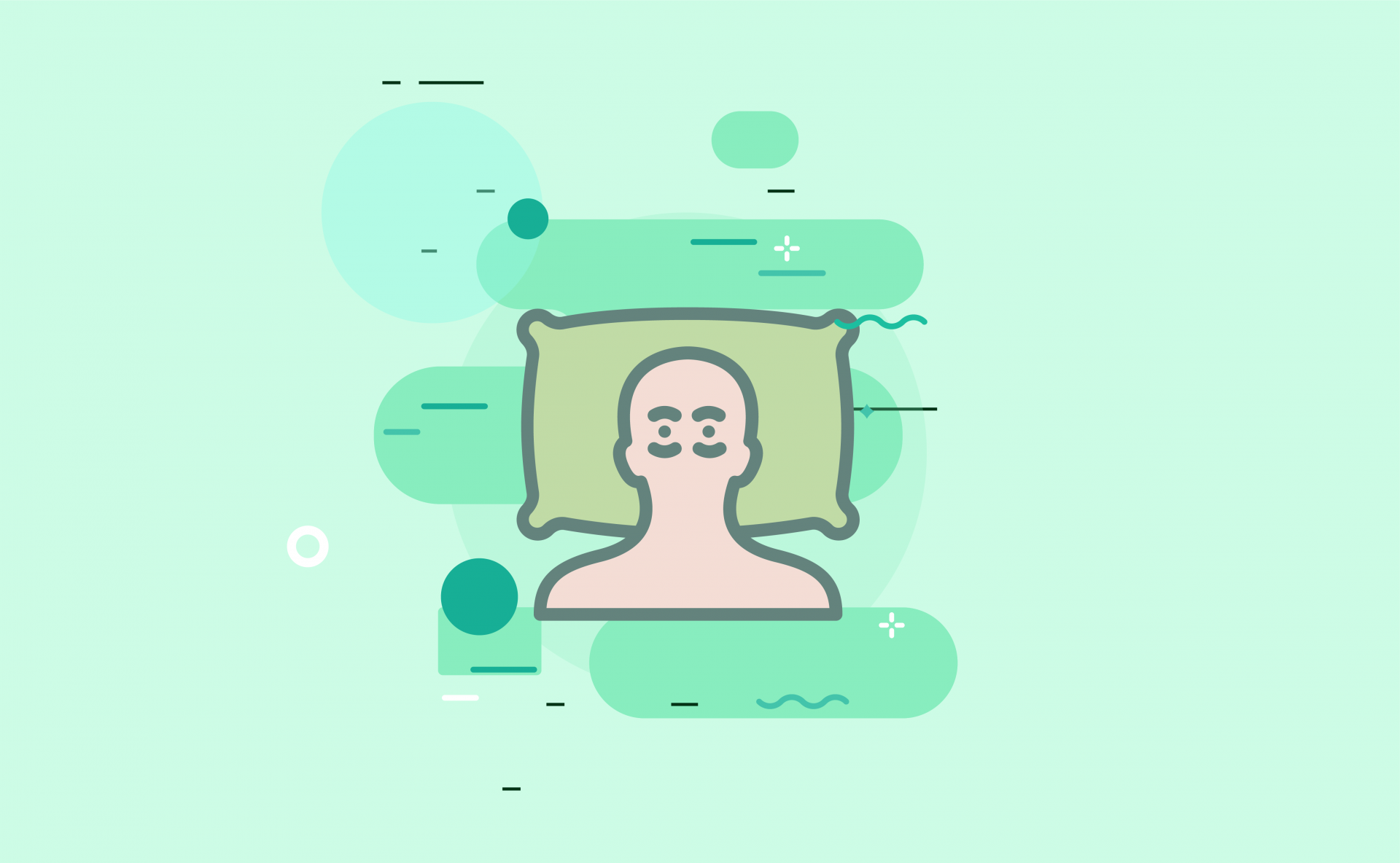
Evidence based
Best CBD Oil For Sleep & Insomnia (Top Brands Reviews 2022)
Stop staring at your alarm clock all night and do something about it.
Here are 7 of the best CBD products to help you get to sleep faster, and stay asleep longer.
If you’ve been having trouble sleeping, you may want to give CBD a try.
This powerful herbal sedative can help you fall asleep faster and stay asleep longer.
Unfortunately, not all CBD products are up for the task.
Our team has reviewed hundreds of CBD products over the years. We know what works and what doesn’t.
In this guide, we’ll cover some of our top picks for supporting sleep & insomnia, and explore steps you can take to get the most from your CBD oil.
Best CBD Oil For Sleep & Insomnia
- Kiara Naturals CBD Sleep and Relax Tincture — CBD & Sleep-Supportive Herbs
- Royal CBD Oil — Best Full-Spectrum CBD Oil For Sleep
- Gold Bee CBD Gummies — Best CBD Gummies For Sleep
- Neurogan CBN Calm Oil — Best CBN Oil For Sleep
- Brothers Apothecary CBD Sleep Aid Capsules — Best CBD Capsules For Sleep
- cbdMD CBD Bath Bombs — Best CBD Bath Bomb For Sleep
- Kat’s Naturals Relax CBD Oil — CBD & Hops Extract For Sleep
1. Kiara Naturals CBD Sleep and Relax Tincture
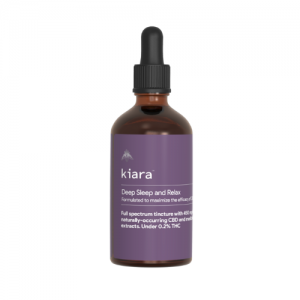
$99.99
Kiara Naturals
Kiara Naturals Deep Sleep & Relax Tincture 100 mL
| Total CBD: | 1000 mg |
| Potency: | 10 mg/mL |
| Cost per mg CBD: | $0.10 |
| Extract Type: | Full-Spectrum |
Kiara Naturals specializes in making holistic CBD products. This involves combining other herbal and nutritional extracts with their CBD oils to optimize them for specific conditions or symptoms.
This formula is specifically made to help with sleep. It contains herbs such as valerian, hops, and California poppy — all three of which offer formidable sleep-supportive benefits on their own. This formula has a lot of synergy for helping you fall asleep, stay asleep, and wake feeling more refreshed.
If you’ve tried CBD oils to help with sleep in the past and didn’t find much relief, this is a good option to try. There’s a lot more in here than simply CBD.
2. Royal CBD Oil
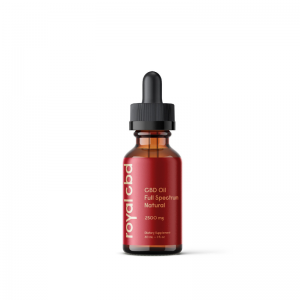
$49 – $229
Royal CBD
Royal CBD Oil 30 mL
| Total CBD: | 500 – 2500 mg |
| Potency: | 16.6 – 83.3 mg/mL |
| Cost per mg CBD: | $0.12 – $0.18 |
| Extract Type: | Full-spectrum |
| THC Content: | <0.3% |
Royal CBD is frequently featured on our recommendations lists. They make some of the best CBD products we’ve tried to date — simple as that.
These oils are great for just about any application of CBD — including sleep.
All Royal CBD oils are made from organic hemp plants and processed using a solventless CO2 extraction. The final yield is rich in cannabinoids, terpenes, sterols, and various other phytochemicals. Some of the terpenes abundant in Royal CBD oils provide additional sedative benefits — including humulene, lavandin, and bisabolol.
The 1000 mg and 2500 mg CBD oil in this range are the best options for supporting a healthy night of sleep (a little bit of this stuff goes a long way).
Enter the code DAILY10 for 10% off your order
3. Gold Bee CBD Gummies
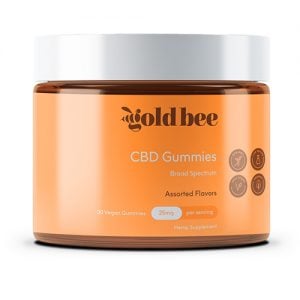
$69.00
Gold Bee
Gold Bee Vegan CBD Gummies 30 Gummies
| Total CBD: | 750 mg |
| Potency: | 25 mg per Gummy |
| Cost per mg CBD: | $0.09 |
| Extract Type: | Broad Spectrum |
Gold Bee is a family-owned CBD company based out of California. They feature a small, but impressive lineup of CBD products consisting of CBD oils, capsules, and these premium CBD gummies.
These gummies are a great option for supporting sleep and insomnia for three main reasons:
- They’re made from a broad-spectrum extract — additional cannabinoids like CBN and CBG have a lot of sleep-supportive benefits that boost the sedative action of CBD
- They’re vegan-friendly and don’t use synthetic ingredients — some synthetic additives used in CBD gummies can have a stimulating action and negatively affect sleep
- They contain a high dose of CBD — each gummy delivers 25 mg of CBD, which is enough to provide noticeable sedative action for most people
We consider these gummies to be within the “premium” category of products, yet they cost the same or less than most average gummy brands. This alone makes these gummies worth checking out.
Use the code DAILYCBD at checkout for 10% off your order.
4. Neurogan CBN Calm Oil
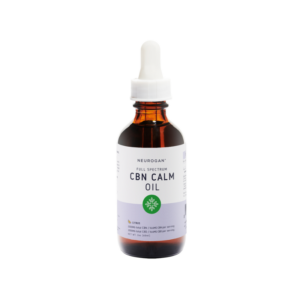
$129.99
Neurogan
Neurogan CBN Calm Oil 60 mL
| Total CBN: | 2000 mg |
| Total CBD: | 2000 mg |
| Cost per mg Cannabinoids: | $0.03 |
| Potency: | 66.7 mg/mL |
This product from Neurogan is made with a high-potency CBD extract with a 1:1 ratio of CBN (cannabinol).
These 60 mL bottles contain 2000 mg of CBD and 2000 mg of CBN for a total cannabinoid content of 4000 mg.
CBN is well-known for its relaxing effects and very mild psychoactivity. It’s about 10% as active as THC, with a focus on the more sedating and relaxing effect profiles.
This oil is comparable to CBD and melatonin blends in its ability to facilitate sleep. It’s especially useful for people who have trouble falling asleep but can also be helpful for people who find they’re waking up in the middle of the night.
5. The Brother’s Apothecary CBD Sleep Aid Capsules
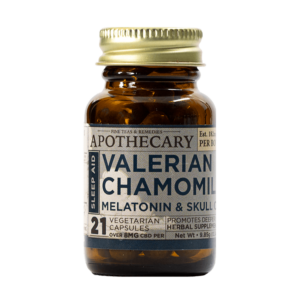
$15.00 – $49.99
The Brothers Apothecary
Brothers Apothecary CBD Sleep Aid Capsules 21 – 84 Capsules
| Total CBD: | 168 – 672 mg |
| Potency: | 8 mg/capsule |
| Cost per mg CBD: | $0.07 – $0.09 |
| Extract Type: | Whole Herb |
| THC Content: | <0.3% |
The Brothers Apothecary was founded by two Portland-based brothers with a passion for natural health and wellness. They’ve put together some top-notch CBD formulations — including this CBD sleep aid.
Each capsule contains 8 mg of CBD, along with valerian, chamomile, skullcap, and melatonin — all of which are revered for their ability to promote and sustain sleep.
This intelligent blend of herbs work synergistically together to help you relax at the end of the day, and is strong enough to keep you in a deep sleep throughout the night.
6. cbdMD CBD Bath Bombs
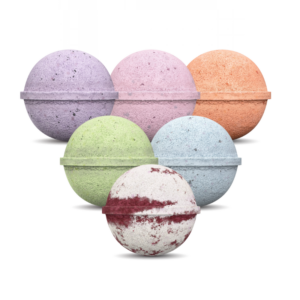
$9.99
cbdMD
cbdMD CBD Bath Bombs
| Total CBD: | 100 mg |
| Potency: | 100 mg per Bath Bomb |
| Cost per mg CBD: | $0.09 |
| Extract Type : | Broad-spectrum |
| THC Content: | 0.0% |
There’s nothing more relaxing than a bath at the end of a long day.
In fact, having a relaxing ritual like a bubble bath right before bed is often enough on its own to release tight, stressed-out muscles and lower cortisol levels. The result is a feeling of peace that makes it easy to drift off to sleep.
We especially like the Resist CBD Bath Bomb by cbdMD for its potent lavender aroma.
Lavender is popular among aromatherapists for promoting sleep. One of the active compounds in lavender — lavandin — has even been shown to increase theta and alpha-brain waves which are associated with deep, restorative sleep.
Each bath bomb contains 100 mg of CBD — which isn’t enough to provide the sedative effects of CBD on its own but is certainly enough to loosen muscle tension which is one of the primary manifestations of pent-up stress from the day.
This bath bomb is listed as one of the best CBD bath bombs overall for the high dose and use of other active ingredients.
7. Kat’s Naturals Relax CBD Oil
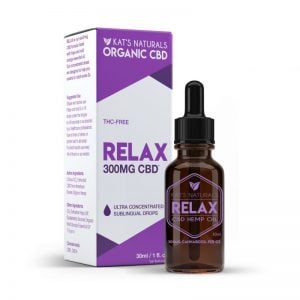
$19.99 – $59.99
Kat’s Naturals
Kat’s Naturals Relax THC-Free Sublingual CBD Oil 5 mL – 30 mL
| Total CBD: | 50 mg – 300 mg |
| Potency : | 10 mg/mL |
| Cost per mg CBD: | $0.20 – $0.40 |
| Extract Type: | Isolate |
| THC Content: | 0.0% |
This tincture from Kat’s Naturals is formulated with hops extract. Hops is the only other member in the cannabis family, and like cannabis, its resin contains an array of powerfully relaxing terpenes and phytochemicals.
This is a good blend for people who find they’re waking up frequently in the middle of the night. It’s not as useful as some of the other mentions on this list for those who experience the most difficulty falling asleep.
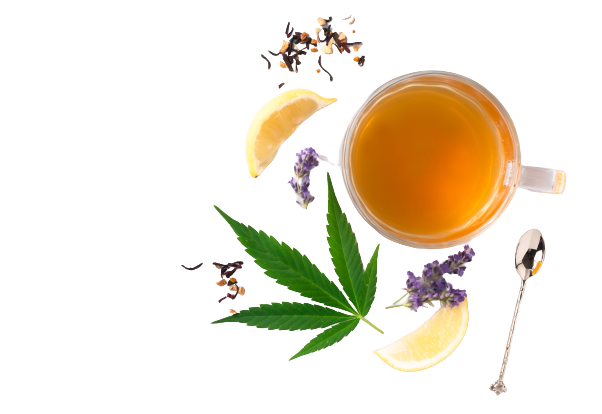
The Benefits Of Using CBD Oil For Sleep
There are many benefits of CBD oil — but few are as well-studied as its effects on supporting a healthy night of sleep.
The best CBD oils for sleep are made from full-spectrum hemp extract, come with third-party tests to prove their purity, and offer additional ingredients to fortify the sedative qualities of CBD.
Here are five evidence-based mechanisms CBD uses to improve our ability to fall asleep, maintain it, and feel more well-rested the following morning.
1. CBD Has Sedative Qualities
One of the most commonly observed effects of high-dose CBD is sedation [4]. CBD helps to improve not only the overall quality of sleep but also the duration [5].
In lower doses CBD has been shown to have the opposite effect — supporting wakefulness and attention [11].
It’s important to use the high-end of the dosage spectrum when taking CBD oil in order to take advantage of the sedative qualities (more on how to dose CBD oil later).
Several other cannabinoids have also been shown to offer sedative effects, such as CBN, CBG, CBC, and CBDV. This is why it’s better to use a full-spectrum extract for sleep rather than a CBD isolate oil.
2. CBD May Relieve Anxiety
Stress-induced anxiety can lead to disrupted sleep patterns. CBD has been shown to reduce symptoms of stress and anxiety [6].
Combined with other stress-management techniques, CBD may be a useful supplement for reducing anxiety symptoms to help you get to sleep more easily at the end of the day.
3. CBD May Reduce Nightmares
If nightmares or flashbacks are keeping you awake at night, clinical trials have shown that CBD can cease or significantly reduce nightmares and persistent memories [7].
It’s not well understood how CBD offers this benefit, but it’s a commonly reported benefit of using CBD. Many parents report improvements when using CBD with smaller children suffering from night terrors.
4. CBD May Improve Sleeping Patterns
CBD has shown promising results for people with REM sleep behavior disorder — a condition that causes people to act out physically during REM sleep.
It’s also been found to support those with excessive daytime sleepiness by increasing total sleep time [8]. CBD can help to reset sleep patterns and promote longer periods of uninterrupted sleep.
5. CBD May Alleviate Pain
Chronic pain is one of the most common causes of sleep disorders. CBD can help by alleviating pain while you sleep.
Many patients have reported replacing their prescription pain medications with CBD, particularly in the treatment of headaches, fibromyalgia, arthritis, and other chronic pain syndromes.
There’s even evidence that CBD can be used to help wean people off of opiates/opioids or benzodiazepines and reduce withdrawal symptoms [9].
What to Look For When Buying CBD Products
There are many CBD oils suitable for supporting sleep. The best CBD oils are made from a full-spectrum hemp extract, contain a relatively high concentration of CBD, come with third-party safety tests.
It also helps to look for CBD oils that contain other sedative ingredients such as melatonin or other herbal extracts.
- Opt for a full-spectrum CBD oil
- Aim for a high-potency CBD oil (at least 1000 mg)
- Source your oils from a reputable manufacturer
- Choose products with other sleep-supportive ingredients (holistic CBD oils)
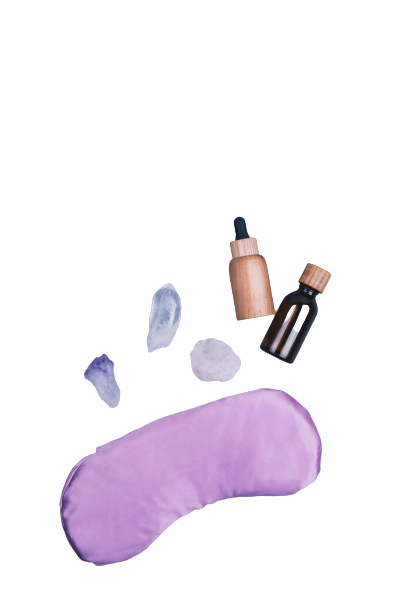
Guide to Using CBD for Sleep Support
Using CBD is relatively straightforward, but there are some nuances involved to get the most out of it.
Here, I’ll discuss how to figure out what kind of insomnia you may be experiencing, and how to use CBD oil most effectively to address it.
I’ll cover how to find the right dose when to take it, and what other ingredients or supplements you may want to consider taking alongside your oil for greater benefit.
1. CBD Oil For Different Types of Insomnia
As we’ve already covered — not all insomnia is the same. There are many different causes and forms of insomnia. This can influence which products are the best for your symptoms specifically.
The first step to really optimizing your sleep with CBD is to find a product that will match your particular sleeping issue more closely.
With all of that said, even if you don’t know the exact cause of your sleeping trouble, CBD will still provide benefits.
Here Are Some General Guidelines for Each Type of Insomnia:
Sleep Onset Insomnia:
- Use a full-spectrum CBD extract
- Use stronger doses of CBD
- Spend time winding down before bed at night
- Avoid electronic screens for at least an hour before bed
- Establish a routine bedtime every night
Sleep Maintenance Insomnia:
- Use a full-spectrum OR isolate CBD extract
- Use stronger doses of CBD
- Monitor blood glucose levels and eat meals higher in protein and complex carbs in the evening
- Use a humidifier if living in drier climates
- Consume some sugar before bed (to support the movement of tryptophan in the brain)
- Consider testing thyroid and liver function
Non-Restorative Sleep:
- Use full-spectrum OR isolate CBD
- Monitor blood glucose levels
- Consider using adaptogens
- Exercise first thing in the morning (to regulate cortisol spikes in the morning)
- Take measures to effectively manage stress levels
Related: Does Cannabis Affect Dreams?
2. What’s The Dose of CBD Oil For Sleep?
CBD is well-known for its sedative benefits — however, this is only true in the higher dosage ranges. Low doses lack thee sedative benefits, and may even provide a mild stimulating effect instead.
It’s difficult to provide specific dosage ranges of CBD for sleeping difficulties because everybody reacts to the compound differently.
With that said, there are some general starting guidelines inexperienced users can use to get started.
We recommend starting at the lowest dose for your weight rating and build up gradually over time until you experience the benefits you’re looking for.
Use our CBD dosage calculator below to find your dose of CBD.
CBD Dosage Calculator
Generally speaking, the effective dose for insomnia and sleeping disorders is on the heavy end of the spectrum.
For children experiencing sleeping issues the doses are different, learn more about using CBD oil for children.
3. CBD Oils With Other Sleep-Supportive Ingredients
CBD is an excellent sleep-supportive supplement — but it works best when paired with other supplements that promote sleep as well.
This may include nutrients like tryptophan and magnesium that support the production of melatonin, or even melatonin itself.
Other supplements that support a neurotransmitter called GABA can also help us relax long enough to fall asleep and keep brain activity low to help us remain in deep REM sleep for as long as possible.
There are plenty of other herbs and supplements that can be formulated with CBD to optimize its overall effects. A few good herbs you might find mixed with CBD oil includes kava, delta 8 THC, passionflower, damiana, or kratom.
List of Other Beneficial herbs/Supplements to Take With CBD & Their Effects on Insomnia
| Herb/Supplement | Sleep Onset Insomnia | Sleep Maintenance Insomnia | Non-Restorative Sleep |
| German Chamomile (Matricaria chamomilla) | ✅ | ✅ | ✅ |
| Glycine | ✅ | ✅ | 🚫 |
| Hops (Humulus lupulus) | ✅ | ✅ | 🚫 |
| Kava (Piper methysticum) | ✅ | ✅ | ✅ |
| L-theanine | ✅ | ✅ | ✅ |
| Lavender (Lavandula angustifolia) | ✅ | 🚫 | ✅ |
| Magnesium | ✅ | ✅ | ✅ |
| Melatonin | ✅ | ✅ | ✅ |
| Passionflower (Passiflora incarnata) | ✅ | 🚫 | 🚫 |
| Tryptophan | ✅ | 🚫 | ✅ |
| Valerian (Valeriana officinalis) | ✅ | ✅ | 🚫 |
| Delta 8 THC | ✅ | ✅ | 🚫 |
* The best sleep formula we’ve seen yet goes to Kiara Naturals for their Deep Sleep & Relax Tincture.
4. Check for Third-Party Test Results
If you’ve used our website before, you may be familiar with our stance on third-party testing.
To summarize, third-party testing is essential for CBD companies to be able to back up their claims. The CBD space is highly unregulated at this time, and there are a lot of companies that have been caught making false claims about the hemp quality, cannabinoid profiles, and purity of their products.
It’s easy to say your products are free from contaminants like solvents or heavy metals, or has specific levels of CBD — but much harder to prove this if you’re manufacturing methods aren’t perfect.
Third-party testing involves sending samples from each batch of extracts to an independent lab for analysis — by definition, these labs need to have no affiliation with the company manufacturing the CBD oil.
Independent labs will usually test for the following:
- Cannabinoid profiles
- Terpene profiles
- Organic solvent
- Pesticides
- Heavy metal contamination
Why Third-Party Testing Matters for Sleep Support
Third-party testing is more important than you might think.
If you’re taking a product to help you sleep that has contaminants like heavy metals or pesticides — these can actually negate the benefits of the CBD and conversely make it more difficult for you to sleep.
Always check for independent testing to prove the safety of the product you’re using before you use it — or if this isn’t your cup of tea you can always use our product guides to see if we were able to verify these tests for the product you were thinking about buying.
Some companies don’t post these results. This doesn’t guarantee its products have been compromised, but it makes it hard to trust these companies. We recommend avoiding CBD oils or other products from companies that don’t put in the effort to get their products tested.

CBD Gummies For Sleep
Many people prefer to use CBD gummies for sleep because they’re a little bit easier to use and lack the grassy hemp taste many CBD oils contain.
If you’re for some good CBD gummies to help with sleep, opt for products that contain other sleep-supportive ingredients — such as melatonin, L-theanine, or chamomile extract. Most companies at this point carry a sleep gummy option.
You may also find delta 8 THC gummies or delta 9 THC gummies are even more effective for helping you sleep.
Lower doses of delta 9 gummies are better for sleep than higher doses — so make sure you start with just a low amount. If you take too much you may find it even more difficult to sleep than before.
Delta 8 THC doesn’t have this same issue. The more you take, the more sleep-inducing they become.
Is CBD Oil Safe?
CBD is generally well-tolerated and has minimal side effects. Some people experience dry mouth, drowsiness, lightheadedness, and low blood pressure.
You can’t overdose on CBD.
According to the World Health Organization (WHO), CBD oil, in its pure state, does not cause harm or have the potential for abuse even at high doses [10].
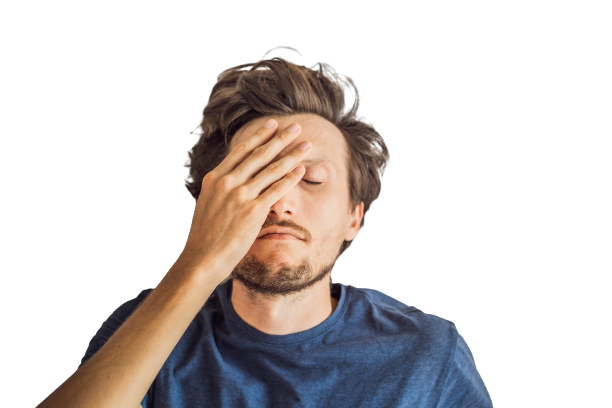
Signs You May Not Be Getting Enough Sleep
Sleep deprivation can have many short-term and long-term consequences. Identifying insomnia early is critical to avoid more serious consequences.
Signs of sleep deprivation or low-quality sleep include:
- Daytime sleepiness
- Yawning
- Irritability
- Moodiness and negativity
- Fatigue
- Forgetfulness
- Brain fog
- Increased appetite
- Cravings for high carbohydrate foods
- Poor impulse control
What Causes Insomnia & Sleeping Disorders?
Many of people refer to all insomnia as if it were the same thing — this couldn’t be further from the truth. There are different types of insomnia.
Sleep is a complex process involving multiple different organ systems and neurotransmitters.
Issues with sleep can arise from hyperactivity, dysfunctional hormonal balance, blood sugar dysregulation, poor thyroid function, digestive disturbances, cardiovascular disease, or environmental causes.
The cause for your insomnia will determine the best course of action to correct it.
Let’s go over some of the key differences between the three main categories of insomnia:
1. Sleep-Onset Insomnia (Difficulty Falling Asleep)
We’ve all felt the form of insomnia before — you’re in bed, ready to go to sleep but your mind is racing.
For some reason, all your best ideas are popping up at precisely the worst moment. You keep glancing over at your clock — running mental calculations to determine how long you’ll be able to sleep if you could fall asleep right now. This only makes it worse.
The technical term for this is sleep-onset insomnia — and it’s very common.
This form of insomnia is most common in people experiencing high stress levels. It can happen the night before a big event or meeting, or before a trip, you’re excited for.
Unfortunately, it can also happen seemingly out of nowhere — leaving you feeling tired and slow the following day.
Common Causes of Sleep Onset Insomnia:
A. High Stress Levels
When we’re under a lot of stress our cortisol levels can remain higher than normal for long periods of time. Cortisol is a stimulant, causing hyperactivity in the brain that becomes especially apparent when we try to shut off at the end of the day.
CBD may help reduce stress levels by regulating cortisol levels and reducing the stimulating effects of cortisol in the brain.
B. Irregular Circadian Rhythm
Our circadian rhythm (AKA sleep-cycle) is what makes us feel tired at the end of the day, and awake during day.
The sleep cycle is regulated by two hormones — cortisol to make us feel awake, and melatonin to make us feel tired.
This system can become out of balance while traveling (jet lag), during periods of stress, or if our sleeping patterns aren’t consistent (such as with shift work).
CBD can help in higher doses by promoting sleep — if taken regularly at the same time each day this can help train the circadian rhythm.
C. Side-Effects of Medications
A lot of medications can also make it difficult to fall asleep.
Stimulants like caffeine, Adderall, modafinil, Ritalin, or Vyvanse are the most common culprits, but other medications can cause this as well. Sleeping tablets are another major cause of this type of insomnia. We quickly develop tolerance to these medications — if we stop taking them it can cause significant difficulty falling asleep on our own until the tolerance wears off.
CBD shares some of the same mechanisms as prescription sleeping pills — always check with your doctor before using CBD if you’re taking sleeping pills or anti-anxiety medications.
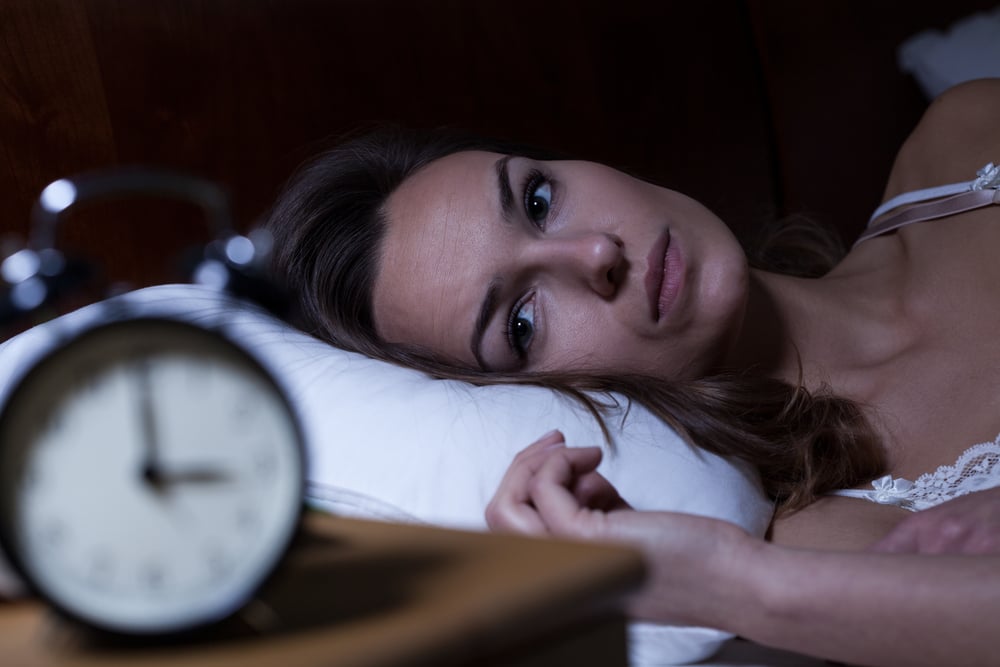
2. Sleep-Maintenance Insomnia (Difficulty Staying Asleep)
With this form of insomnia, you may be able to fall asleep without any issues but will wake up one or more times each night — often around the same time.
This type of insomnia can have many different causes, which can be hard to identify at first.
Anything from circadian rhythm irregularities to diabetes or heart disease can cause us to wake up during the night.
The Three Most Common Causes of Sleep Maintenance Insomnia Include:
A. Blood Sugar Dysregulation
Our blood sugar levels are maintained at a constant level throughout the day. When we eat a meal, hormones like insulin shuttle excess sugar into the cells and convert any leftovers into fat for storage. When blood sugar drops between meals, stored sugar is released from the muscles and liver to keep blood sugar levels stable.
While we’re asleep we’re essentially forced to fast for several hours at a time. This can cause blood sugar to drop too low — which causes panic in the body that forces us to wake up from our sleep. We usually wake up feeling hungry and may need to get a midnight snack in order to fall back asleep.
CBD may help regulate blood sugar levels. This helps us maintain optimal blood sugar levels longer — preventing low blood sugar from forcing us to wake up to eat.
B. Circadian Rhythm Dysregulation
We’ve already covered how a dysfunctional circadian rhythm can affect our ability to fall asleep, but it can affect sleep maintenance as well.
Normally our sleep cycle follows a regular pattern — melatonin rises in the evenings making us feel tired.
It remains high until 2 or 3 hours before we usually wake up.
At this point, cortisol levels gradually increase — eventually reaching a point that forces us to wake up.
If our circadian rhythm is out of balance, cortisol levels may begin to rise much too early, causing us to wake up in the early hours of the morning — unable to fall back asleep.
CBD may help by reducing the release of cortisol in the early hours of the morning, and keeping the effects of relaxing neurotransmitters like GABA high — making it more difficult for cortisol to make us wake up ahead of schedule.
C. Sleep Apnea
Sleep apnea is a serious disorder involving irregular breathing patterns while we sleep.
Breathing may suddenly stop and start at random intervals. If breathing stops for even just a few seconds, our brain starves of oxygen and forces us to wake up in a panic.
Sleep apnea can be serious, and there are several different types. If you think you may be suffering from sleep apnea it’s crucial that you visit your doctor to get their professional opinion and run any necessary tests.
CBD may not be able to help with insomnia if sleep apnea is the root cause.
D. Snoring
Snoring occurs when the respiratory muscles relax and narrow, causing a vibration in the throat.
Being overweight increases the risk of snoring — the more restricted the airway, the louder you will snore.
CBD may help when used long-term by promoting weight loss.
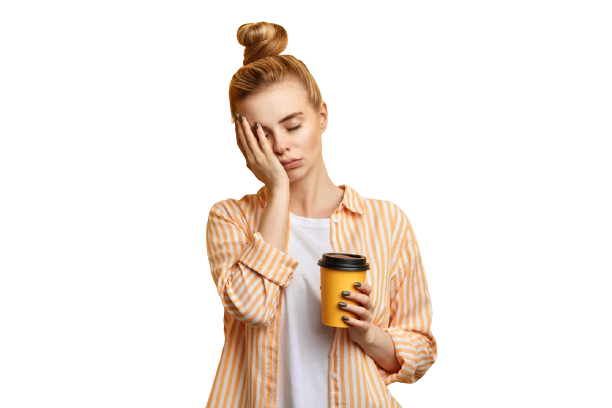
3. Non-Restorative Sleep
The final form of insomnia doesn’t sound like insomnia at all — but it has the same impact.
People experiencing non-restorative sleep will wake up feeling just as tired as they did when they went to bed. It feels as though you didn’t sleep at all, even though you were technically asleep all night.
There are a few different causes for this type of insomnia, some of which we’ve already covered:
A. Blood Sugar Dysregulation
Sometimes people who are experiencing only mild drops in blood sugar while they sleep don’t fully wake up from the low blood sugar. This makes it hard to pinpoint this as a cause for the unrefreshed sleep.
Even when blood sugar doesn’t drop enough to make us wake up, it can still interfere with the quality of our sleep.
We need to remain in a deep resting state for most of the night to get a full sleep. If low blood sugar keeps pushing us back into higher layers of sleep and brain activity we may not have enough time in deep sleep to feel fully refreshed in the morning.
CBD may help by regulating blood sugar levels throughout the night. It’s been shown to help with conditions like diabetes and metabolic syndrome that are characterized by poor blood sugar regulation.
Other steps, such as eating high protein meals and avoiding processed sugar in the evenings can go a long way in preventing these symptoms.
B. Restless Leg Syndrome
Restless leg syndrome is an uncomfortable condition involving the urge to move the legs while resting or sleeping.
These urges can prevent us from reaching deeper levels of sleep throughout the night — leaving us feeling unrefreshed the following morning.
This condition can happen randomly, and without any identifiable cause — however, it’s best to visit a doctor if you’re affected as it can also signal more serious underlying conditions like heart disease or diabetes.
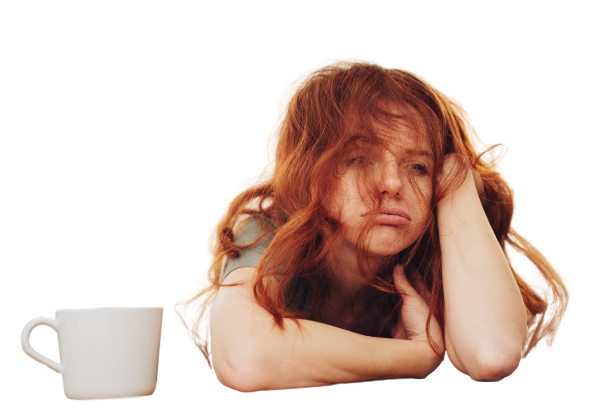
What Happens When We Don’t Get Enough Sleep?
Sleep deprivation causes a host of issues, including decreased attention span, short-term memory problems, and the inability to mimic emotions.
These activities are tied to various regions of the brain, where there’s a decrease in task-related brain activity.
Sleep disruption also affects the hypothalamus — which is the part of the brain responsible for maintaining the circadian rhythm.
Long-term sleep issues may lead to metabolic, cardiovascular, and immune system disorders.
What Are The Health Risks of Poor Sleep?
In 2014, the CDC reported that about 35.1% of all adults got less than 7 hours of sleep per night.
This comes along with other studies that indicate a close correlation between the amount of sleep and health problems — it’s no wonder that sleep deprivation can increase the mortality rate.
Long-term side effects of insomnia may include:
- Weight gain and obesity
- Diabetes
- Hypertension
- Heart disease
- Depression and mood disorders
- Dementia
- Impaired immune function
- Increased pain
- Poor cognitive function and memory
- Increased errors and mistakes
- Increased risk of accidents
- Decreased alertness
- Low sex drive
- Aging skin
- Increased mortality rate
The Five Stages of Sleep
According to the Rechtschaffen and Kales manual, there are five stages of sleep.
Stages one and two are considered to be light sleep, three and four are deep sleep, and the final stage is REM sleep.
Let’s go over each sleep stage in more detail.
1. Stage One
The first stage is light sleep with small brain waves. We drift in and out of sleep, our eyes move slowly, muscle activity decreases, and we can be woken up easily.
2. Stage Two
The body starts preparing for deep sleep. Eye movements and brain waves slow down, body temperature drops, and heart rate slows down.
3. Stage Three
During the third stage, we enter deep sleep. Extremely slow brain waves called delta waves are intermixed with smaller, faster brain waves. Muscle activity is also much lower during this stage.
4. Stage Four
The fourth stage is a very deep sleep where the brain almost exclusively produces slow delta waves and rhythmic breathing.
5. Stage Five (REM Sleep)
REM sleep is when most dreaming happens, your eyes move rapidly, blood pressure and heart rate rise, and the brain becomes much more active.
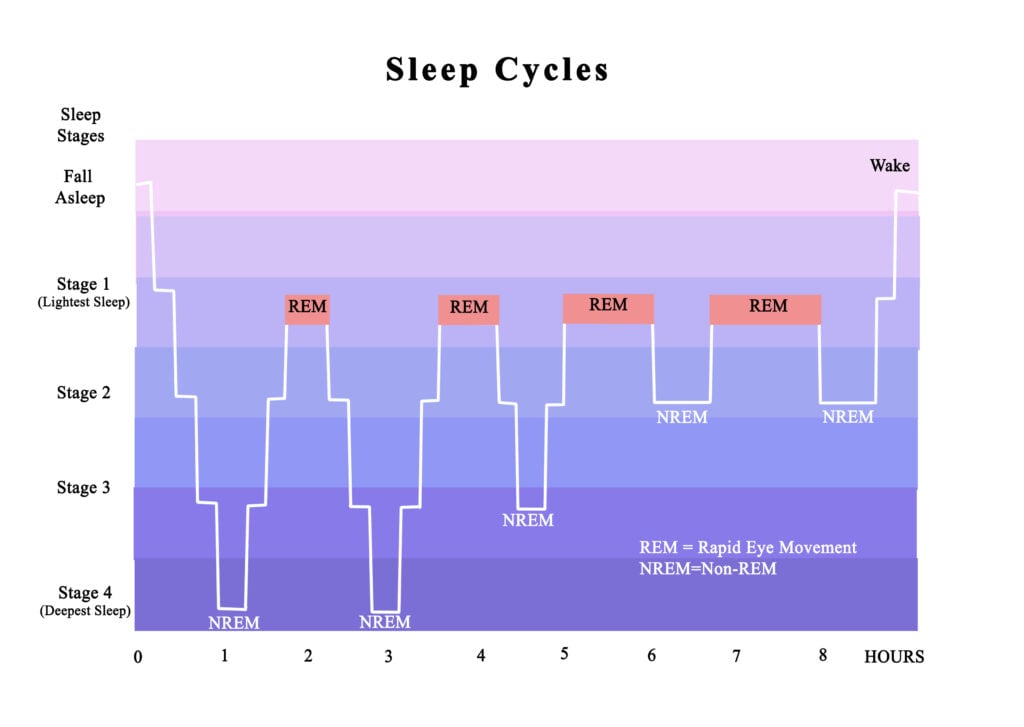
Optimize CBD Oil For Sleep These Sleep Hacks
Sleep hygiene is a series of practices you can employ to optimize your sleep. The concept was first developed in the 1970s for treating mild to moderate insomnia and works so well it’s stuck around to this day.
1. Get The Timing Right
Go to bed and get up at roughly the same time every day — even on weekends! This will help regulate your internal clock (circadian rhythm).
Set a dedicated bedtime, and dedicated wake-up time roughly 8 hours later. There are a lot of phone apps that can help you keep track of this by reminding you when to wind down for bed, and waking you up in the morning.
2. Practice a Wind-Down Routine
Create a ritual to prepare for sleep.
Take a warm bath with CBD bath bombs or magnesium salts, meditate, read, or do breathing exercises.
All these things can help you wind down and get your body ready for sleep. The more often you practice winding down, the better. Over time, your body will begin to associate these practices with sleep and the practice will become even more effective.
3. Optimize Sleep Conditions
If you can adapt your sleeping environment for sleep, it will be much easier to both fall asleep and stay asleep.
Keep your bedroom cool, quiet, and comfortable. Use blackout curtains to keep the room dark and remove any electronic devices that may be eliminating light.
Earplugs are also a good idea to keep out unwanted noise if you live with roommates or a noisy partner.
4. Avoid Using Stimulants After 3 pm
Avoid alcohol, energy drinks, and caffeine for at least 4 to 6 hours before going to bed. These stimulants can interfere with deep sleep.
If you’re especially sensitive, you may want to cut off the caffeine much earlier — around noon or 1 pm at the latest.
5. Exercise Often
A regular exercise routine can help you achieve a good night’s sleep. It tires you out, and forces cortisol levels to spike early so they can start to taper off more easily in the late afternoon and evening.
However, avoid strenuous exercise too close to bedtime as it can have the opposite effect — making you feel more alert and stimulated.
6. Focus On Eating A Healthy, Well-Balanced Diet
Our diet plays a major role in our stress and anxiety levels. Nutrient deficiencies, excess sugar, and certain food additives can all contribute to insomnia.
Try not to eat 2 to 3 hours before bed as eating late or having large meals at dinner can cause blood sugar spikes.
Foods that contain the amino acid tryptophan (almonds, sunflower seeds, pumpkin seeds, etc.) are natural sleep inducers.
7. Limit Your Screen Time
Light and stimulation from your phone, television, or computer can all affect your ability to sleep.
Instead of scrolling through Facebook before you go to bed, read a book or magazine, and avoid staring at any screens.
If you must use your phone, try turning on the “night mode” setting on your phone, which decreases the amount of blue light and turns the screen a yellowish color at night. Blue light in particular stimulates the pineal gland in the brain, which triggers the release of cortisol.
Red light has been shown to have the opposite effect — promoting the release of melatonin instead.

Key Takeaways: Best CBD For Sleep Support
CBD is an excellent supplement for supporting sleep for several reasons:
- It supports GABA activity in the brain — which is the primary relaxing neurotransmitter in the brain
- It regulates cortisol levels — which can keep us lying awake late at night, or force us to wake up too early in the morning
- It promotes muscle relaxation to help ease muscle tension when trying to fall asleep at night
- It regulates blood sugar levels — reducing the chances of waking up as a result of low blood sugar level in the night
- It’s directly sedative in larger doses — helping us get to sleep faster in the evening
Although there are many benefits to using CBD oil for sleep — it shouldn’t be the only thing you do to ensure you’re getting adequate rest.
Taking CBD along with other supplements and lifestyle changes to promote healthy sleep is going to be the most effective by far.
Top-Rated CBD Products For Sleep Support
| Number | Product | Total CBD | Potency | Cost per mg CBD | Link |
|---|---|---|---|---|---|
|
1 |

Kiara Naturals Deep Sleep & Relax Tincture |
400 mg |
4 mg/mL |
$0.25 |
|
|
2 |

Royal CBD Oil |
250 – 2500 mg |
8.3 – 83.3 mg/mL |
$0.09 – $0.20 |
|
|
3 |

Gold Bee Vegan CBD Gummies |
750 mg |
25 mg per Gummy |
$0.09 |
|
|
4 |

Neurogan CBN Calm Oil |
2000 mg |
66.7 mg/mL |
$0.03 |
|
|
5 |

Brothers Apothecary CBD Sleep Aid Capsules |
168 – 672 mg |
8 mg per Capsule |
$0.07 – $0.09 |
|
|
6 |

cbdMD CBD Bath Bombs |
100 mg |
100 mg per Bath Bomb |
$0.09 |
|
|
7 |

Kat’s Naturals Relax THC-Free Sublingual CBD Oil |
50 mg – 300 mg |
10 mg/mL |
$0.20 – $0.40 |
References Cited In This Article
- Watson, N. F., Badr, M. S., Belenky, G., Bliwise, D. L., Buxton, O. M., Buysse, D., … Tasali, E. (2015). Recommended Amount of Sleep for a Healthy Adult: A Joint Consensus Statement of the American Academy of Sleep Medicine and Sleep Research Society. Sleep, 38(6), 843–4. https://doi.org/10.5665/sleep.4716
- Murillo-Rodriguez, E., Pastrana-Trejo, J. C., Salas-Crisóstomo, M., & de-la-Cruz, M. (2017). The Endocannabinoid System Modulating Levels of Consciousness, Emotions, and Likely Dream Contents. CNS & Neurological Disorders – Drug Targets, 16(4). https://doi.org/10.2174/1871527316666170223161908
- Mendiguren, A., Aostri, E., & Pineda, J. (2018). Regulation of noradrenergic and serotonergic systems by cannabinoids: relevance to cannabinoid-induced effects. Life Sciences, 192, 115–127. https://doi.org/10.1016/j.lfs.2017.11.029
- Crippa, J. A., Guimarães, F. S., Campos, A. C., & Zuardi, A. W. (2018). Translational Investigation of the Therapeutic Potential of Cannabidiol (CBD): Toward a New Age. Frontiers in Immunology, 9. https://doi.org/10.3389/FIMMU.2018.02009
- Russo, E. B., Guy, G. W., & Robson, P. J. (2007, August 1). Cannabis, pain, and sleep: Lessons from therapeutic clinical trials of sativexρ, a cannabis-based medicine. Chemistry and Biodiversity. Wiley-Blackwell. https://doi.org/10.1002/cbdv.200790150
- Blessing, E. M., Steenkamp, M. M., Manzanares, J., & Marmar, C. R. (2015, October). Cannabidiol as a Potential Treatment for Anxiety Disorders. Neurotherapeutics. Springer. https://doi.org/10.1007/s13311-015-0387-1
- Jetly, R., Heber, A., Fraser, G., & Boisvert, D. (2015). The efficacy of nabilone, a synthetic cannabinoid, in the treatment of PTSD-associated nightmares: A preliminary randomized, double-blind, placebo-controlled cross-over design study. Psychoneuroendocrinology,51, 585–588. https://doi.org/10.1016/j.psyneuen.2014.11.002
- Babson, K. A., Sottile, J., & Morabito, D. (2017). Cannabis, Cannabinoids, and Sleep: a Review of the Literature. Current Psychiatry Reports, 19(4), 23. https://doi.org/10.1007/s11920-017-0775-9
- Baron, E. P., Lucas, P., Eades, J., & Hogue, O. (2018). Patterns of medicinal cannabis use, strain analysis, and substitution effect among patients with migraine, headache, arthritis, and chronic pain in a medicinal cannabis cohort. The Journal of Headache and Pain, 19(1), 37. https://doi.org/10.1186/s10194-018-0862-2
- WHO. (2017). WHO | Cannabidiol (compound of cannabis). WHO. Retrieved from http://www.who.int/features/qa/cannabidiol/en/
- Murillo-Rodríguez, E., Millán-Aldaco, D., Palomero-Rivero, M., Mechoulam, R., & Drucker-Colín, R. (2006). Cannabidiol, a constituent of Cannabis sativa, modulates sleep in rats. FEBS letters, 580(18), 4337-4345.
